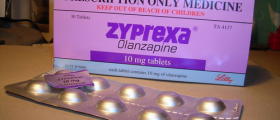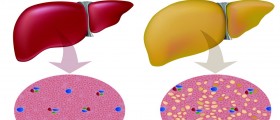
About gynecomastia
Gynecomastia is abnormal enlargement of breasts in men, without lactation, which is the production of milk. This fairly common physiological phenomenon usually occurs during puberty. It is estimated that half of all males in puberty experiences enlargement of one or both breasts. In puberty, there is some enlargement of the discoid tissue underneath the areola, which usually subsides very soon.
Gynecomastia is also seen in elderly men, especially if the age is associated with obesity. It is usually a benign and temporary condition, which may be caused by hormonal imbalance, medication with hormone estrogen or with steroids, by obesity or by liver problems, such as cirrhosis, in which the liver fails to inactivate the circulating estrogen.
However, since gynecomastia may be caused by a serious disorder, such as testicular cancer, it is highly recommended that all the cases of it should be reported to a doctor.
There is another similar condition which should not be confused with real gynecomastia, and it is called pseudogynecomastia. In pseudogynecomastia, the enlargement of the breasts occurs due to fat accumulation in obese people. In order to distinguish which type of gynecomastia one suffers from, it is necessary to perform a physical exam with the palpitation of breast tissue, areolas, nipples and glandular structures of the breasts.
Prevention of gynecomastia
There is no specific preventive method for gynecomastia. However, knowing about the causes of it and about risk factors is probably the best way one can avoid developing this condition.
There are many possible causes for gynecomastia, and most experts agree that hormones play an important role in it. Generally, gynecomastia is associated with decreased androgen production and increased estrogen production. If this imbalance does not solve by itself, it may be necessary to take specific hormone treatment.
Prevention og gynecomastia may also consist of avoiding certain medications associated with abnormal breast tissue growth in men. These include hormones, antibiotics, antiandrogens, anti-ulcer medications, chemotherapy for cancer, certain cardiovascular drugs, psychoactive agents and recreational drugs and alcohol.
Steroids, drugs and alcohol are largely associated with gynecomastia. People who use steroids in order to increase their body weight and fitness, like body-builders, are at serious risk of developing enlarged breasts. Of course, steroids are illegal as a supplement for athletes and they must only be taken with the doctor’s prescription.
On the other hand, alcohol and drugs, including marijuana, can cause gynecomastia because they mimic estrogen and stimulate androgen production.

















Your thoughts on this
Loading...